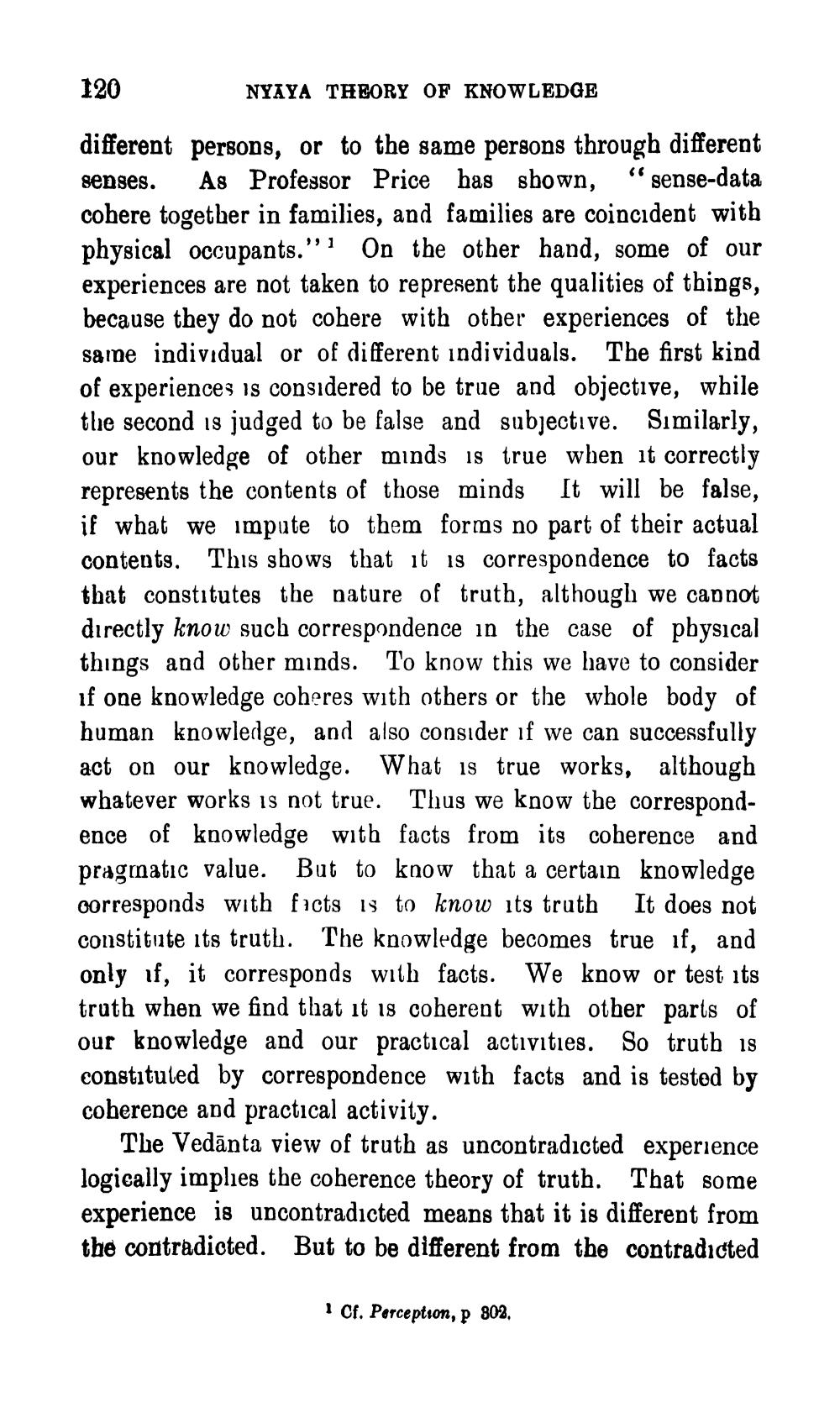________________
120
NYAYA THEORY OF KNOWLEDGE
different persons, or to the same persons through different senses. As Professor Price has shown, “sense-data cobere together in families, and families are coincident with physical occupants."1 On the other hand, some of our experiences are not taken to represent the qualities of things, because they do not cohere with other experiences of the same individual or of different individuals. The first kind of experiences is considered to be true and objective, while the second is judged to be false and subjective. Similarly, our knowledge of other minds is true when it correctly represents the contents of those minds It will be false, if what we impute to them forms no part of their actual contents. This shows that it is correspondence to facts that constitutes the nature of truth, although we cannot directly know such correspondence in the case of physical things and other minds. To know this we have to consider if one knowledge coheres with others or the whole body of human knowledge, and also consider if we can successfully act on our knowledge. What is true works, although whatever works is not true. Thus we know the correspondence of knowledge with facts from its coherence and pragmatic value. But to know that a certain knowledge corresponds with facts is to know its truth It does not constitute its truth. The knowledge becomes true if, and only if, it corresponds with facts. We know or test its truth when we find that it is coherent with other parts of our knowledge and our practical activities. So truth is constituted by correspondence with facts and is tested by coherence and practical activity.
The Vedānta view of truth as uncontradicted experience logically implies the coherence theory of truth. That some experience is uncontradicted means that it is different from the contradicted. But to be different from the contradicted
I Cf. Perception, p 802.




